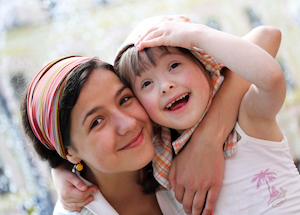 As Christians we possess a fundamental understanding that each person has inherent worth, since we are made in the image and likeness of God. However, we often stand alone in this belief, as movements within our culture try to lead us to believe that worth is based on the usefulness of a person, and not upon the inherent fact that they are God’s creation. They teach that the old, the unborn, and those with physical or mental disabilities are not worthy of life, since they do not contribute to personal or societal gain.
As Christians we possess a fundamental understanding that each person has inherent worth, since we are made in the image and likeness of God. However, we often stand alone in this belief, as movements within our culture try to lead us to believe that worth is based on the usefulness of a person, and not upon the inherent fact that they are God’s creation. They teach that the old, the unborn, and those with physical or mental disabilities are not worthy of life, since they do not contribute to personal or societal gain.
However, this is far from the truth. In a beautiful article called ‘Why We Need ‘Useless’ People’ Amy Becker of Christianity Today provides a perfect rebuttal for this secular mentality, speaking out for those who cannot speak in defense of themselves.
Even though I am the mother of a child with Down syndrome, I often find myself defending my daughter’s skills and abilities rather than her inherent worth. In so doing, I play into the idea that I, too, am only worthy of life because I contribute something productive in the world. I devalue myself and everyone else around me when I start to see human beings as products to be measured.
What harm have we done to the image of God within each of us by placing a price tag on human life? And what’s the alternative model?
In a recent NPR interview with host Krista Tippett, the Irish poet Michael Longley made the statement, “Poetry is useless.” He waited a few beats before he explained, “Poetry is without use, but it is valuable.” As I listened, my mind moved from poetry to people. I thought of the many individuals who do not contribute in any measurable economic way to our society. Useless, others might say. A burden. A drain. And from a purely material, utilitarian way of thinking, they might be right. But anyone who believes in a purposeful Creator God would say that many human beings are indeed “useless,” and yet those same human beings bear inestimable value. In that way, people with disabilities are indeed like the words of a poem: Although they might not provide or produce clothing or shelter or food, they nonetheless convey beauty and meaning, truth and transcendence. They teach us what it means to be human.
Indeed, those who society may cast out as ‘worthless’ are often the very people whom society needs. They show us how to love selflessly, reaching out for human connection instead of power. They have the unique power to heal this agenda-driven culture, teaching us to value people for who they are, not what they can do.



